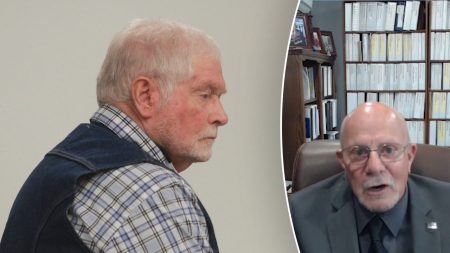A trial for a mass environmental injury case began in Hawaii on Monday, more than two years after a U.S. military fuel tank facility leaked jet fuel into Pearl Harbor’s drinking water, poisoning thousands of people. Instead of a jury, a judge in U.S. District Court in Honolulu will hear about a lawsuit against the United States by 17 “bellwether” plaintiffs representing more than 7,500 others in federal lawsuits. The U.S. government has admitted to causing a nuisance for the plaintiffs and breaching its duty of care, leading to compensable injuries. However, there is a dispute over whether residents were exposed to jet fuel at levels high enough to cause their reported health effects, including vomiting and rashes.
The plaintiffs have submitted declarations detailing how the water crisis sickened them and led to ongoing health problems like seizures, asthma, eczema, and vestibular dysfunction. One plaintiff, Nastasia Freeman, described developing a rash, sores, and lesions accompanied by a sensation that her blood was on fire. Even their dogs were affected, developing various health conditions after consuming the tainted water. Freeman and other residents were frustrated by the lack of warning from Navy officials, who knew there was fuel in the water but failed to caution against drinking it, leading to feelings of being gaslit and deceived.
A Navy investigation report revealed a series of mistakes leading up to the fuel spill in November 2021, including an operator error causing a pipe rupture in May 2021 that resulted in the release of 21,000 gallons of fuel. The majority of this fuel spilled into a fire suppression line and remained there for six months until a cart collision caused another 20,000-gallon fuel release. In response to the 2021 spill, the military agreed to drain the tanks under state orders and pressure from Native Hawaiians and other concerned residents, as the tanks are situated above an aquifer supplying water to 400,000 people in urban Honolulu.
The ongoing trial is significant as it serves as a bellwether case, providing insight into the potential outcomes for similar cases in the future. A bellwether trial helps attorneys determine the likelihood of success or failure for other cases in progress. This trial is crucial for the plaintiffs seeking justice and compensation for the harm caused by the fuel leak and subsequent water contamination. The proceedings will shed light on the responsibility of the United States in causing the environmental injury and the impact it has had on the affected individuals and their families. The trial will examine the evidence presented by both parties to determine the extent of the damages suffered and the accountability of the U.S. government in addressing the crisis.















